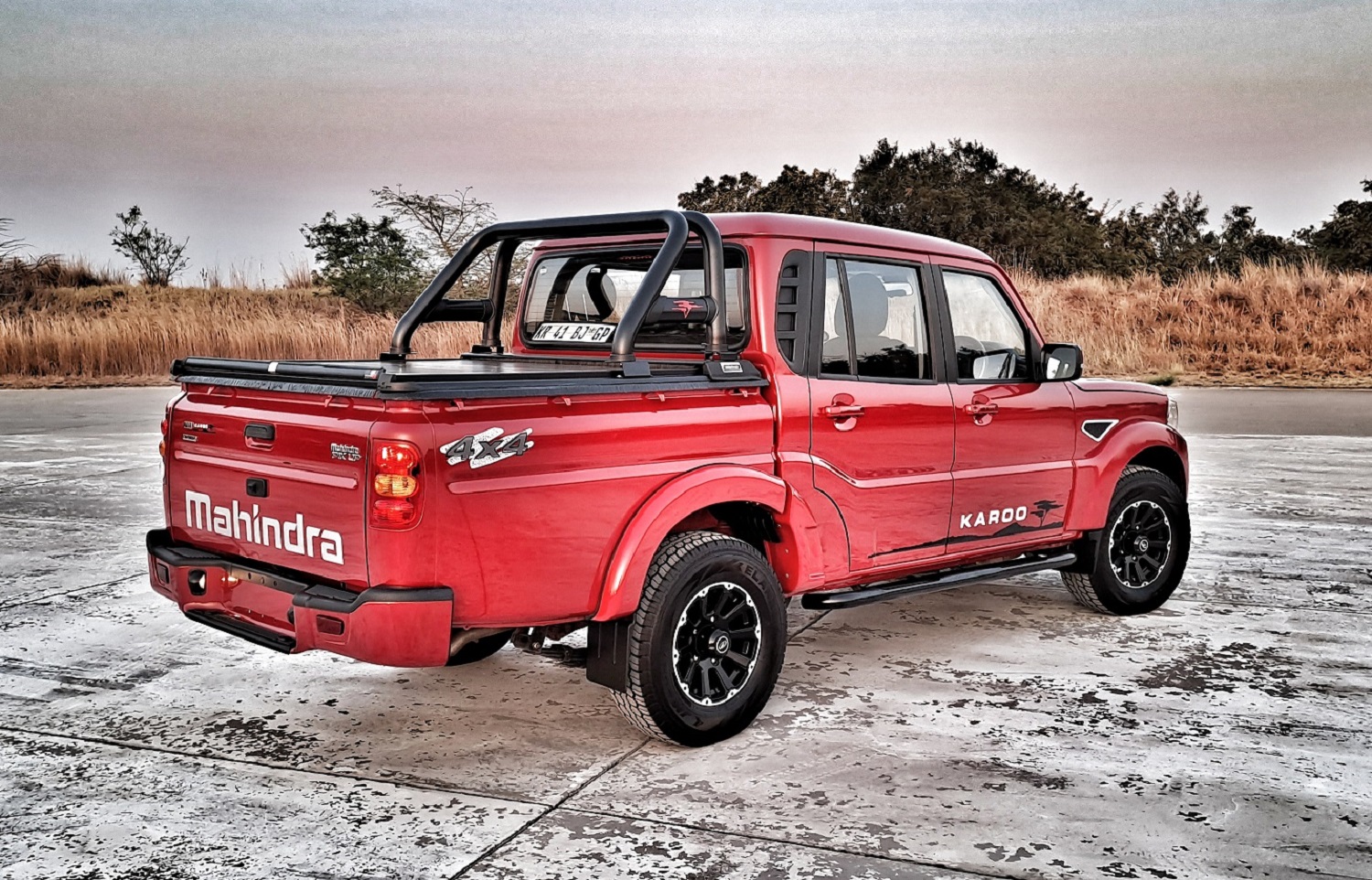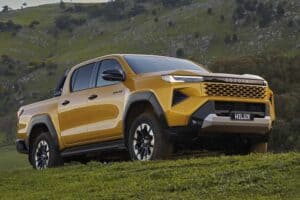No-nonsense bakkie a more affordable alternative to the Toyota Hilux, Ford Ranger and Isuzu D-Max.

Being the bakkie country South Africa is, the bar is constantly being raised in this popular segment.
Bakkies might still be classified by their official name – light commercial vehicles – but they have evolved from being clanky cargo carriers. These days the best double cabs compete with the most comfortable passenger cars with the only differentiator being a loadbin instead of a boot.
But as bakkies’ specification sheets grew, so did their prices. If you told buyers a decade ago that a R1 million would be the bench mark for bakkies within the first quarter of the century, few would have believed you.
That ceiling has already been broken through by the discontinued Mercedes-Benz X-Class and 190 kW VW Amarok, with the Ford Ranger Raptor only a three-figure sum from it.
Expect to pay anything between three quarters of a million and R920 000 for the top offering in the rest of the usual suspects’ stables. Stickers that are out of reach of the majority of buyers.
Mahindra Pik Up offers value for money
But there are more affordable alternatives for those willing to look past the badge, like the Mahindra Pik Up. Not to be confused with its work-orientated Bolero siblings, the Pik Up line-up now range from workhorse single cabs all the way to attractive lifestyle-orientated double cabs.
In fact, the Pik Up has become so popular that it was South Africa’s fifth best-selling bakkie after the Toyota Hilux, Ford Ranger, Isuzu D-Max and Nissan NP200 over the last nine months.
The Citizen Motoring recently had the Mahindra Pik Up S11 double cab 4×4 Karoo on test and felt that this is a lot of bakkie for what seems like a bargain at R509 999.
Mahindra introduced the Karoo designation to its range in 2018 to commemorate the start of the bakkie’s local production at its assembly plant in Durban.
At a R31 000 premium over the S11 on which it is based, the Karoo gets a nudge bar, roll bar, shutter roller, 16-inch black alloy wheels and Karoo decals.
Watch the Mahindra Pik Up from up close
@thecitizen_news For more information visit Citizen.co.za #fyp #foryou #thecitizennews #thecitizenmotoring #Mahindra @jacovanderm
♬ original sound – The Citizen
Old, but not cold
There is no hiding the fact that the design is old – 16 years to be exact – and very utilitarian with little indication of any aerodynamic research. But with the Karoo touches applied this bakkie has a unique appeal that is hard to explain.
The combination of headlights, black grille with chrome detailing, air intake on the bonnet and nudge bar gives the Mahindra Pik Up Karoo an “undiminished charm” to quote my poetic colleague Charl Bosch. Old school cool if you like.
Chunky 245/75 R16 rubberware ensures you don’t have to stress about the paintwork on the shiny rims when venturing over gravel, while the deep loadbin with fastening hooks located on the outside seems ready for any job. It has a rated payload of 995 kg and braked towing capacity of 2 500 kg.
ALSO READ: Times are tough – here are South Africa’s cheapest bakkies in double cab guise
Unique experience
The theme very much continues on the inside, where the dated cabin design carries its age like a Liz Taylor. It is remarkably comfortable, albeit bereft of specs found on more expensive top end bakkies, and yet battle-ready as the thick rubber mats would suggest.

The high seating position along with the large upright windscreen provide brilliant visibility and almost creates the impression that you are driving a truck.
This truck-like sensation is heightened with a strange vibration or “after shock” as we called it throughout the cabin every time you turn off the ignition.
Creature comforts are limited, but include very handy foldable front centre arm rests, seven-inch infotainment system with Bluetooth and smartphone connectivity, USB port, reverse camera, steering wheel-mounted controls, rain-sensing wipers and automatic headlights.
Familiar powertrain
The S11 Karoo is powered by Mahindra’s tried and trusted mHawk 2.2-litre turbodiesel engine mated to six-speed automatic transmission.
While the 103 kW of power and 320 Nm of torque it produces might dwarf to other bakkies’ numbers on paper, we were very surprised by its performance.
The Mahindra Pik Up managed to complete the 0 to 100 km/h sprint in a very credible 14.76 seconds, which means it is definitely not the slowest double cab around. And that is exactly why Road Test Editor Mark Jones tests bakkies, because if they are bought for leisure purposes its performance will always matter.
It cruises effortlessly at the national speed limit with the auto box well behaved, with our average recorded fuel consumption for its weeklong stay of 8.5 litres per 100 km being very commendable.
Handling reminds me a bit of a Mazda 323 which didn’t have power steering. It requires a quite a bit of muscle to manoeuvre in tight spaces which is compounded by a larger than usual turning circle.
The one area a vehicle built on a dated platform like the Mahindra Pik Up will always struggle to keep up with the modern specifications of its rivals is on the safety front. It does offer ABS with EBD, electronic stability control, front airbags and ISOFIX child seat attachments.

Conclusion
The Pik Up S11 Karoo is an honest bakkie that doesn’t pretend to be something it isn’t. And in all its humility, it’s really hard not to like it.
It is tough enough for demanding jobs while being comfortable and attractive enough to qualify as a leisure bakkie. And the best part is, it offers excellent value for money. It’s actually easy to figure out why the Mahindra Pik Up is sitting at Mzansi’s top bakkie table.
Mahindra Pik Up data sheet
Support Local Journalism
Add The Citizen as a Preferred Source on Google and follow us on Google News to see more of our trusted reporting in Google News and Top Stories.






